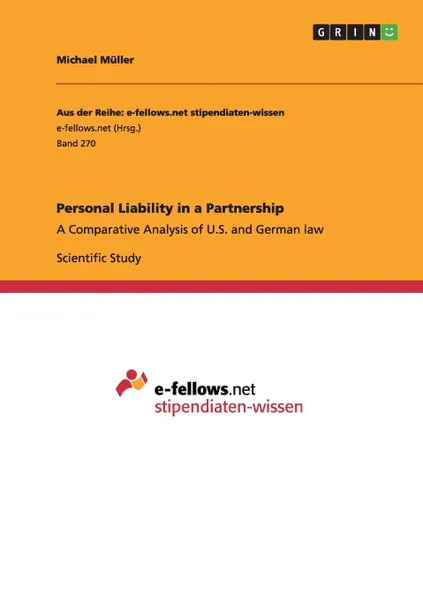Personal Liability in a Partnership 12+
📒 Scientific Study from the year 2011 in the subject Law - Comparative Legal Systems, Comparative Law, grade: A+, The University of Texas at Austin, language: English, abstract: If two or more people have decided to carry on a business together, they face the question which type of business association to choose. Since every sophisticated legal order furnishes a set of national business associations, traditionally parties, familiar with their own legal system, opted for one of those. However, the increase of cross-border commerce has broadened parties' and their legal advisors' perspective and has made them aware of the existence of alternative types of business associations under foreign law. At the same time, a gradual transition from the real seat theory to the incorporation theory in international company law facilitates the extraterritorial use of national business associations. Besides, the predominantly mandatory nature of business associations law in respect of external relationships with third parties can be a strong incentive to employ a foreign type of business association that differs from an otherwise comparable domestic type in a significant matter.
The form of liability for the debts of a business association is such a matter of crucial importance and of mandatory nature alike. Existence and extent of this liability define the risk a member incurs by its participation. Even minor variances in this risk can affect the choice of a business association.
The modern trend is to avoid personal liability as far as possible, either by choosing a corporate form, or a particular partnership form providing for limited liability. Nevertheless, it is still conceivable that the founders of a business would be willing to promote the impression of personal liability in order to attract business. This limits their choice to all kinds of internationally available "partnerships," the concept of which, in contrast to the concept of "corporations," is widely associated wit
The form of liability for the debts of a business association is such a matter of crucial importance and of mandatory nature alike. Existence and extent of this liability define the risk a member incurs by its participation. Even minor variances in this risk can affect the choice of a business association.
The modern trend is to avoid personal liability as far as possible, either by choosing a corporate form, or a particular partnership form providing for limited liability. Nevertheless, it is still conceivable that the founders of a business would be willing to promote the impression of personal liability in order to attract business. This limits their choice to all kinds of internationally available "partnerships," the concept of which, in contrast to the concept of "corporations," is widely associated wit
Мнения
